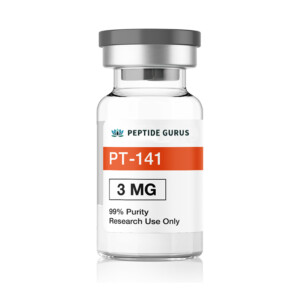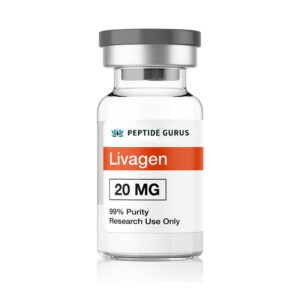Research peptides have become an essential tool in modern scientific studies, providing researchers with the means to explore various biological processes at the molecular level. These peptides, small chains of amino acids, play a crucial role in understanding cellular functions, signaling pathways, and potential therapeutic targets. Among the myriad of available peptides, identifying the best research peptides can significantly impact the quality and outcomes of scientific investigations.
The best research peptides are characterized by their high purity, stability, and bioactivity. Purity is paramount as impurities can interfere with experimental results, leading to false conclusions. High-quality peptides are synthesized using advanced techniques that ensure minimal contaminants. Stability is another critical factor; peptides must remain stable under experimental conditions to produce reliable data. Bioactivity refers to the peptide’s ability to interact with biological targets effectively, a feature that is essential for studying specific cellular mechanisms.
One of the most popular categories of research peptides is growth hormone-releasing peptides (GHRPs). These peptides stimulate the release of growth hormone from the pituitary gland, making them invaluable in studies related to growth, metabolism, and aging. GHRPs like GHRP-2, GHRP-6, and Ipamorelin are widely used in research to understand their effects on muscle growth, fat loss, and overall metabolic function.
Another significant category is melanocortin peptides, which include Melanotan I and II. These peptides are primarily studied for their effects on skin pigmentation, sexual function, and appetite regulation. Research on melanocortin peptides has provided insights into conditions like obesity, erectile dysfunction, and skin disorders. Their ability to influence melanin production makes them a focal point in dermatological studies.

Neuropeptides such as oxytocin and vasopressin are also among the best research peptides. These peptides are crucial in studying social behavior, stress responses, and emotional regulation. Oxytocin, often referred to as the ‘love hormone,’ is extensively researched for its role in social bonding, trust, and empathy. Vasopressin, on the other hand, is studied for its effects on water retention and blood pressure regulation.
Cytokine peptides, like thymosin beta-4, are essential in immunological research. These peptides play a significant role in cell signaling and immune responses. Thymosin beta-4, in particular, is studied for its potential in wound healing, inflammation reduction, and tissue regeneration. Understanding cytokine peptides can lead to breakthroughs in treating autoimmune diseases and enhancing immune system function.
Antimicrobial peptides (AMPs) are gaining attention for their potential in combating antibiotic-resistant bacteria. These peptides, such as LL-37 and defensins, exhibit broad-spectrum antimicrobial activity. Research on AMPs is crucial in developing new therapeutic strategies to address the growing concern of antibiotic resistance. Their ability to disrupt bacterial membranes makes them promising candidates for novel antimicrobial agents.
Peptide hormones like insulin and glucagon are foundational in diabetes research. Insulin, a peptide hormone produced by the pancreas, regulates blood sugar levels, making it a critical subject of study in diabetes management. Glucagon, another peptide hormone, works antagonistically to insulin and is essential in understanding glucose metabolism. Research on these peptides aims to improve treatments for diabetes and related metabolic disorders.
Cell-penetrating peptides (CPPs) are a unique class of peptides that facilitate the delivery of therapeutic molecules into cells. These peptides, such as TAT peptide and penetratin, are studied for their ability to transport drugs, nucleic acids, and other bioactive molecules across cellular membranes. CPPs hold significant potential in gene therapy, cancer treatment, and regenerative medicine.

Apoptosis-inducing peptides are vital in cancer research. These peptides, like BH3 mimetics, promote programmed cell death in cancer cells. Understanding how these peptides induce apoptosis can lead to the development of targeted cancer therapies. Research on apoptosis-inducing peptides is crucial in creating treatments that selectively eliminate cancer cells while sparing healthy tissue.
Peptide-based vaccines are an emerging area of research with significant implications for infectious disease control. These vaccines use specific peptide sequences to elicit an immune response against pathogens. Research on peptide-based vaccines aims to develop safer and more effective immunizations against diseases like influenza, HIV, and cancer. Their specificity and safety profile make them promising candidates for next-generation vaccines.
Angiotensin peptides are central to cardiovascular research. These peptides, such as angiotensin II, are involved in regulating blood pressure and fluid balance. Research on angiotensin peptides helps in understanding hypertension, heart failure, and other cardiovascular conditions. Targeting these peptides can lead to the development of new treatments for cardiovascular diseases.
Peptide inhibitors of protein-protein interactions are a growing field in drug discovery. These peptides, such as stapled peptides, can disrupt interactions between proteins that drive disease processes. Research on peptide inhibitors is crucial in developing therapies for conditions like cancer, viral infections, and neurodegenerative diseases. Their ability to selectively target protein interactions makes them valuable tools in precision medicine.
Peptide mimetics are synthetic analogs of natural peptides designed to mimic their biological activity. These mimetics are studied for their potential to improve the stability, bioavailability, and efficacy of peptide-based therapies. Research on peptide mimetics aims to enhance the therapeutic potential of peptides in treating various diseases, including cancer, cardiovascular disorders, and metabolic conditions.
Peptide arrays are an innovative tool in proteomics research. These arrays consist of thousands of different peptides immobilized on a solid surface, allowing for high-throughput screening of protein interactions. Research using peptide arrays provides valuable insights into protein function, signaling pathways, and disease mechanisms. They are essential in identifying new drug targets and understanding complex biological systems.
Peptide nucleic acids (PNAs) are synthetic polymers that mimic DNA and RNA. These molecules are studied for their potential in gene editing, antisense therapy, and molecular diagnostics. Research on PNAs aims to develop novel therapeutic strategies for genetic disorders, cancer, and viral infections. Their stability and specificity make them powerful tools in molecular biology and medicine.
Peptide-based drug delivery systems are a focus of research aimed at improving the delivery and efficacy of therapeutic agents. These systems utilize peptides to enhance the targeting and release of drugs within the body. Research on peptide-based drug delivery aims to overcome challenges like poor bioavailability and off-target effects, making treatments more effective and safer.
Peptide hydrogels are being explored for their applications in tissue engineering and regenerative medicine. These hydrogels, formed by self-assembling peptides, provide a supportive matrix for cell growth and tissue repair. Research on peptide hydrogels aims to develop new materials for wound healing, cartilage repair, and organ regeneration. Their biocompatibility and versatility make them promising candidates for medical applications.
Peptide biomarkers are crucial in disease diagnosis and prognosis. These biomarkers, identified through peptide profiling, provide insights into disease states and treatment responses. Research on peptide biomarkers aims to develop diagnostic tests for conditions like cancer, cardiovascular diseases, and neurological disorders. Their specificity and sensitivity make them valuable tools in personalized medicine.
Peptide-based imaging agents are being developed for non-invasive diagnostic techniques. These agents, labeled with radioactive or fluorescent markers, allow for the visualization of biological processes in real-time. Research on peptide-based imaging agents aims to improve the detection and monitoring of diseases like cancer, cardiovascular conditions, and neurological disorders. Their precision and safety profile make them essential tools in medical imaging.
All products on this site are for Research, Development use only. Products are Not for Human consumption of any kind.
The statements made within this website have not been evaluated by the US Food and Drug Administration or HEALTH CANADA. The statements and the products of this company are not intended to diagnose, treat, cure or prevent any disease.
PeptideGurus is a chemical supplier. PeptideGurus is not a compounding pharmacy or chemical compounding facility as defined under 503A of the Federal Food, Drug, and Cosmetic act. Peptide Sciences is not an outsourcing facility as defined under 503B of the Federal Food, Drug, and Cosmetic act.
PeptideGurus is a leading supplier of American-made research peptides, offering top-quality products at competitive prices. With a focus on excellence and customer service, they ensure a secure and convenient ordering process with global shipping.
CONTACT